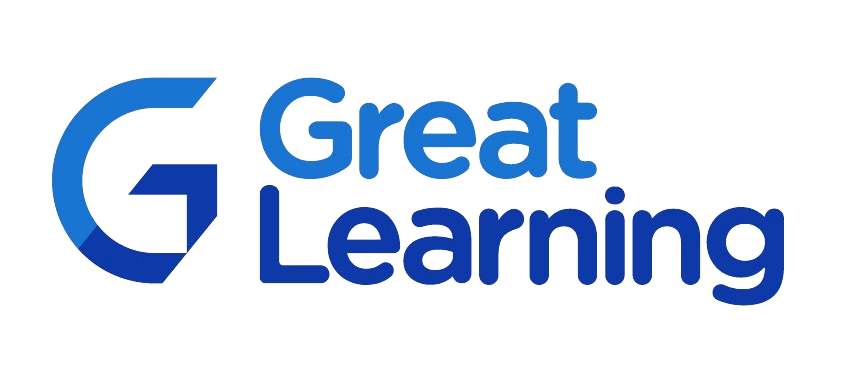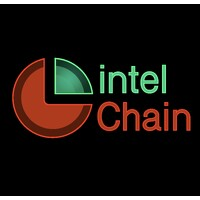Batch of May 2022
| maintenance engineer
at sheet shapers india pvt ltd
| india
My experience with Great Learning was excellent. I highly recommend this program as it provides comprehensive knowledge and support that can help you excel in your career. Great Learning is known for its brand and quality content, making it the perfect choice for anyone seeking a career transition or looking for better job opportunities. I would definitely recommend this program to all my friends and family.
Program : Advanced Certificate Program in Full Stack Software Development
See all Reviews of
this program
![arrow icon]()
Batch of April 2022
| software engineer
at tech mahindra
| india
I took up this program as I wanted to change my career path and learn adequate skills. Great Learning is a powerful learning platform. The program material is extremely helpful in upskilling, and the support they gave for helping us crack an interview is remarkable. The program is self-paced and is the right choice for anyone who wants to have a career transition or restart their career in a new domain.
Program : IIITH-PGCSS-Accelerated Learning
See all Reviews of
this program
![arrow icon]()
Batch of July 2021
| senior software engineer
at icertis
| india
The program has a well-structured curriculum to explain concepts from ground level to advanced. The method of delivery is very professional. Faculties are knowledgeable and helpful. Our Program Manager ensured we were on track and helped us round the clock with queries. Our mentor made difficult concepts seem easy through hands-on practice. The program permits experience-based learning and interaction. The program material is comprehensive and additional material is provided to cover interest areas. The labs provide ample practical exposure. It has been a Great Learning experience.
Program : Advanced Certificate Program in Full Stack Software Development
See all Reviews of
this program
![arrow icon]()
Batch of November 2021
| software engineer
at infinite
| india
I used to work as a Website Developer. I had 2 years of work experience but felt stuck in my previous job, so I wanted to update my skill set and I came to know about Great Learning and IIT Roorkee's Full Stack Development course. I joined the course and was really impressed by the curriculum and most importantly the way everyone goes above and beyond to make sure I understood the material. They even provided extra material when I had doubts and helped me prepare for interviews. It's a 10-month course but after 2 months itself, I felt confident enough to attend interviews. Within 1 month I got job offers from multiple companies. They arranged a mentor session to help me choose a job that would be beneficial for me and I joined Infinite Computer Solution with a more than 100% salary hike. So I really want to thank Great Learning for making me a better coder.
Program : Advanced Certificate Program in Full Stack Software Development
See all Reviews of
this program
![arrow icon]()
Batch of November 2021
| associate software engineer
at accenture in india
| india
I gained a lot of technical and practical skills as I worked on industry-level projects in various domains. This not only enhanced my skill set but also got me an amazing job at Indegene. The program provided me with a lot of quality learning material which helped me grasp concepts faster. It also taught me to be disciplined, structured and professional in my approach to completing all assignments. I'm really grateful for the guidance and support from the faculty members, the support team, and my mentors during my placement journey!
Program : Advanced Certificate Program in Full Stack Software Development
See all Reviews of
this program
![arrow icon]()
Batch of March 2021
| machine learning scientist
at dhiomics analytics solutions
| india
The course content given by the professors of IIIT-Hyderabad and Great Learning faculties is very good. Every weekend, mentors take care of clearing the doubts and explaining how the learnings get applied in the industry. Projects at the end of every module, helped me apply my new skills in a more practical way. Within three months of completing the course, I got placed in DhiOmics Analytics Solutions Private Limited as a Machine Learning Scientist. Finally, I would like to thank all the faculty members of Great Learning for supporting me throughout the program.
Program : IIITH-PGCSS-Accelerated Learning
See all Reviews of
this program
![arrow icon]()
Batch of October 2021
| director of engineering
at elphasecure
| india
I had joined a program on loT, Cloud and Blockchain by Great Learning. And, here are some of the best things about the program. It is well curated and helped me understand concepts in a practical way. The projects that I work on were interesting and the mentor sessions were really useful in understanding concepts. Special thanks to the Program Manager who helped me throughout my learning journey.
Program : IIT Madras: Advanced Certification in Software Engineering for Cloud, Blockchain & IoT
See all Reviews of
this program
![arrow icon]()
Batch of May 2022
| engineer
at larsen&toubro infotech
| india
I started my career as a civil engineer, but was passionate about data and challenges in the Data Science domain. I learnt all the desired skills with Great Learning. It was fast paced, well -structured and the faculty delivered complex concepts in a way that was easy to understand. It was great, starting from the resume preparation, technical mentoring, soft skills development everything in between!
Program : Advanced Certificate Program in Full Stack Software Development
See all Reviews of
this program
![arrow icon]()
N Venkata Surya Bharadwaj
21 Feb 2023
Batch of January 2021
| junior data analyst
at entytle, inc.
| india
I would like to thank the entire Great Learning team for supporting us. I am from Mechanical Engineering, along with my B. Tech I started learning programming languages, and I am a data enthusiast. I love to work on data and started learning about the data science foundation. Later on, after my graduation, I joined this IIITH- SEDS Program from Great Learning. The program helps you build a strong foundation. The lectures from IIITH Professors are too good, and you'll have a recording class where you can ask them directly in the class if you get stuck at a point. They share their beautiful experiences and come to the most important point. Program support is the main pillar where they have a super team. Whenever you have a doubt or any issues, if you raise a ticket, you'll get the response ASAP. Teaching sessions, hands-on, extra classes, everything is too perfect.
Program : IIITH-PGCSS-Accelerated Learning
See all Reviews of
this program
![arrow icon]()
Jesus Alfonso Beltran Galindo
19 Mar 2024
Batch of March 2023
| co-founder
at shopsi
| mexico
“This program offers comprehensive content, spanning from basic webpages to deploying full-fledged web applications. The up-to-date materials and unwavering support from academic and technical teams make it an excellent choice for knowledge updates and learning. Highly recommended for people who are looking forward to learning more about software development.”
Program : Full Stack Software Development: Building Scalable Cloud Applications
See all Reviews of
this program
![arrow icon]()




















































